Content
The same share (26%) say they are nowlessconcerned than they were before the new variant started to spread. About half (48%) say they are about as concerned as they were before. Looking to the future, 60% of workers with jobs that can be done from home say when the coronavirus outbreak is over, if they have the choice, they’d like to work from home all or most of the time. Among those who are currently working from home all or most of the time, 78% say they’d like to continue to do so after the pandemic, up from 64% in 2020.
What are the benefits of employees working from home?
Working from home can be positive for both enterprise employers and employees. Increased productivity, improved work-life balance, and reduced costs are just some of the ways remote work flexibility can be mutually beneficial. Hopefully, you now have some ideas for how to hire remote employees the right way.
I really like the flexibility in hours that a stay-at-home position offers. Being able to set my own hours allows me to work when I am most alert. Ultimately, I am more productive when working from home than when commuting to an office and wasting time stuck in traffic. When interviewing for employment to work from a home-based office, you will be asked a few questions about why you want to work from home and what you like best about working remotely . Views on COVID-19 vaccination requirements vary widely along party lines. Some 47% of Democrats and Democratic leaners who are not exclusively working from home think their employer should require employees to get a vaccine, compared with just 10% of Republican and Republican-leaning workers. In turn, 53% of Republicans say their employer should neither require nor encourage employees to get vaccinated; only 10% of Democrats say the same.
What activities do you do that help you maintain a work-life balance?
Approximately half of the U.S. full-time workforce — representing about 60 million workers — report that their current job can be done remotely working from home, at least part of the time. What exactly hybrid work will look like for each organization is just beginning to take shape, and the ensuing lessons will define our work lives for years to come.

About three-in-ten (28%) say their workplace is currently closed or unavailable to them, and a similar share (27%) say they don’t have a workplace outside of their home. The share saying they don’t have a workplace outside of their home is up significantly from 2020, when 18% said this. Adults without a four-year college degree are much more likely to fall into this category than those with a bachelor’s degree or more education (40% vs. 19%, respectively). There arekey demographic differencesbetween workers whose jobs can and cannot be done from home. Among those who say the responsibilities of their job can mainly be done from home, some groups are teleworking more frequently than others. References to workers or employed adults include those who are employed part time or full time and who have only one job or who have more than one job but consider one of them to be their primary job. Join your peer CHROs and senior HR executives from leading organizations to discuss specific HR challenges and learn top HR trends and priorities.
Set Ground Rules With the People in Your Space
Someone who is accustomed to having a huge part of their social life come from work can raise a red flag. We lean towards candidates who love to travel, value having a flexible lifestyle, or have worked remotely in the past. These types of candidates are often strong culture fits and successful at The Cheat Sheet. One of the biggest is a candidate has to have worked remotely before, preferably for at least 2 years. Bonus points for working previously for a completely remote team.
Also, if they have not worked remotely before, I pay careful attention to the questions they have about remote work. Therefore, we admire people who explore our website, follow us on social media, and can quote some of our services or products during an interview. Our best team members apply based on certain things we offer and having followed our CEO or some of our team members for a while, being excited to join our team. Autonomy and self-discipline are absolute requirements for remote workers. We look also for people who are proactive in their approach to their lives and their work. It’s so crucial for anyone working as part of a distributed team to have great communication skills and that can be obvious from the first couple of interactions. Anyone who writes a clear, well-presented note and includes all the requested enclosures with their application is going to get our attention.
Don’t stay at home.
However, understanding how and where an applicant works best helps you understand them as a potential employee. Keep in mind that not everyone works best in a traditional office setup—some people prefer the couch, the backyard, or the public library. If they like working from the coffee shop, do they have a way to connect to your office server privately, or are they relying on a public internet connection? Reiterate any home-office requirements, like a wired internet connection, a private area for calls, or anything else you specified in the job posting. When you work in an office, you can usually get the answer you need when you need it. Simply pop into a coworker’s or supervisor’s office and ask your question.
- For example, they won’t tell an employer what time zone they’re in.
- An additional 19% say this is a minor reason why they don’t work from home more often, and 21% say this is not a reason.
- The ability to trust that your teammate is going to go away and do an amazing job and check back in when they’re ready to.
- If they talk about how they hate dealing with new technology or can’t stand updating their computer, dig into this a little more.
- Think about the tradeoffs you made when picking them, what could be improved, and how you leveraged them to build in more space for deep work.
- Preparing food ahead of time ensures you can use your meal times to eat and that you aren’t performing non-work tasks that spend energy better used at your desk.
Working remotely, especially when working from home most of the time, means figuring out these issues and others. Here are 20 tips for leading a better and more productive remote-work life, based on my experience work from home experience and what I’ve learned from others. These remote workers juggle inbound and outbound calls and help customers with orders or account information and require good communication and people skills.
Recent Job Searches
About one-in-five workers who are not working exclusively from home (22%) say their employer has required employees to get a COVID-19 vaccine. About three-quarters (77%) say their employer has not required vaccination (47% say their employer has encouraged it and 30% say they have not). Vaccination requirements don’t seem to be related to these views.
- You’d be amazed at how many people can’t even communicate clearly to set up a phone interview.
- Ms. Gifford said they only asked her about her family, as if being a mother were her entire personality.
- Whatever your answer, be sure it reminds the interviewer you are a great job candidate.
- The No. 1 reason employees prefer hybrid work is to avoid commute time.
- If the work experience is part of a course, the HEI will probably have negotiated the placement with the employer, and will help you prepare your CV and look for a suitable placement.


